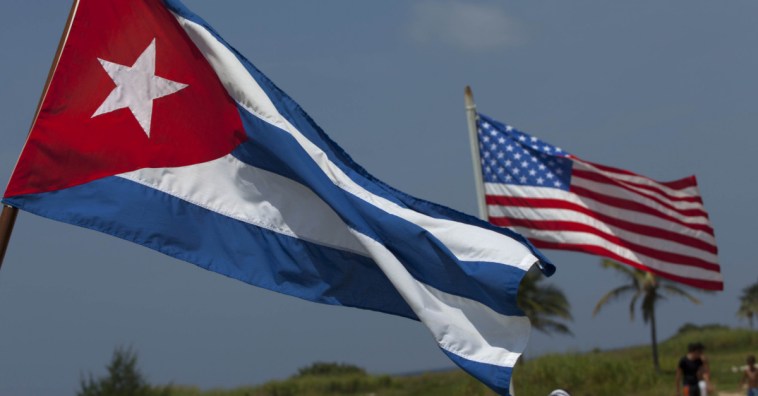President Obama’s decision to end the U.S. embargo of Cuba was the right thing to do, even if the way he did it and his error-prone press conference left something to be desired.
Videos By Rare
Many prominent conservatives immediately attacked the president’s action. Senator Marco Rubio highlighted on Fox News some of Obama’s misleading and inaccurate statements.
But we have an old saying that the Lord sometimes hits a straight lick with a crooked stick. And while many conservatives believe Obama is a crooked stick, there are several reasons why renewing relations with Cuba is a straight lick.
The 50-year-old embargo hasn’t worked. The U.S. imposed a series of increasingly strict sanctions and embargos against Cuba in the early 1960s, embargoes that have been reconfirmed by Congress several times. Those embargoes were intended to push Fidel Castro to end his political repression and institute democracy and free speech, all to no avail.
Obama pointed out that the embargo has been around as long as he has been alive, and as Michael J. Totten has pointed out in City Journal, conditions in the island country have only gotten much worse.
To be sure, the U.S. still imposes embargoes and economic restrictions on countries—e.g., Iran and Russia—to encourage them to change their behavior. Sometimes they work—South Africa and apartheid—and sometimes they don’t. There is usually an on-going public debate about those sanctions and how effective they’ve been, but we know the Cuban sanctions haven’t worked.
Cuba is no longer a serious threat. President John F. Kennedy cranked up the restrictions in 1963, following the Cuban missile crisis. At the time, Cuba’s close proximity to the U.S. and embrace of our Cold War enemy Russia made it a threat to U.S. safety. But those days are long gone—mostly.
While Russia is increasingly returning to the old days and its old ways under President Vladimir Putin, and Venezuela is a close ally, Cuba is no longer a threat to the U.S. The State Department will review the country’s links to terrorism, and the U.S. public should get a full airing if any terrorism connections are confirmed. And if it is clear that Cuba is engaged in aiding and abetting terrorism, now or in the future, the U.S. can always reconsider imposing sanctions.
The Castros’ days are numbered. Fidel, 88, and his brother Raul, 83, won’t be around much longer. We do not yet know who will run the country after Raul or what its policies will be. But reengaging now opens up the possibility that the U.S. could have some influence in that imminent transition.
We maintain relations with other repressive regimes. Senator Rubio wrote in the Wall Street Journal: “[I]t has been the policy and law of the U.S. to make clear that re-establishing diplomatic and economic relations with Cuba is possible—but only once the Cuban government stops jailing political opponents, protects free speech, and allows independent political parties to be formed and to participate in free and fair elections.
But couldn’t those criticisms also apply to the Chinese government? How about most of the middle-eastern countries, which we count as some of our close allies?
How about Russia? Even as we currently ratchet up economic sanctions on Russia for its Ukrainian incursions, we keep diplomatic ties with the country.
So while we as a country absolutely reject how the Cuban dictators abuse human rights, its hard to see why Cuba gets the shaft while Russia and China both have permanent normal trade relations (NTR).
The default position should be free trade. It may make political sense to impose sanctions on a country that has gone rogue—although historians and political scientists disagree over how effective such sanctions are. But sanctions and embargoes should not be the standard foreign policy response rogue countries; they should be the very rare exception.
The default U.S. position should be free trade. Trade represents the essence of a free society, because both are based and depend on voluntary contracts. Free trade requires negotiations, concessions and agreement—not force.
Critics may be right that Obama could and should have demanded more in return for U.S. concessions. He seems to take a tougher stand against Republicans than he does against communists—including the recent China carbon emissions agreement.
But embracing Cuba and its people is not endorsing the Castros and their five-decade reign of death and repression. It’s just a good first step on a long road to a freer and prosperous Cuba.

